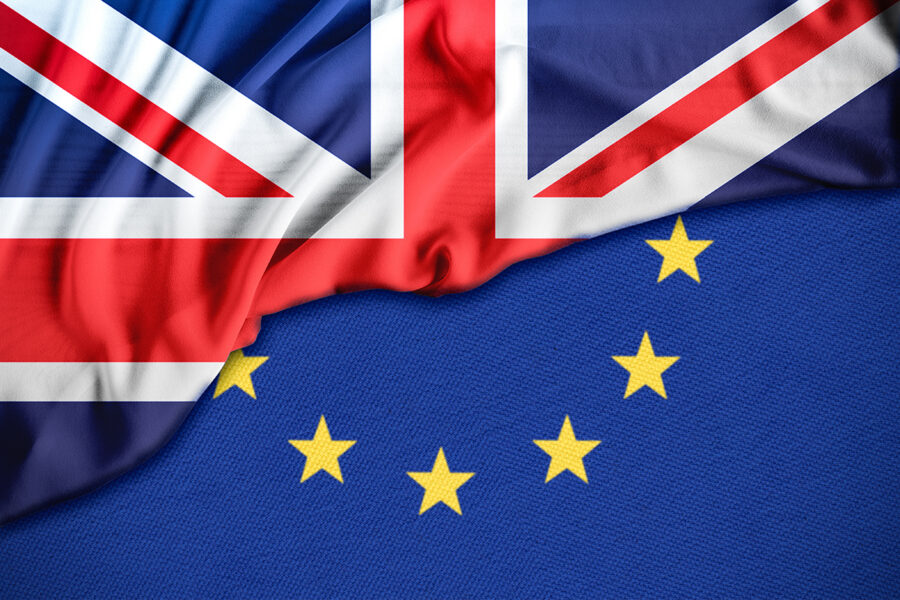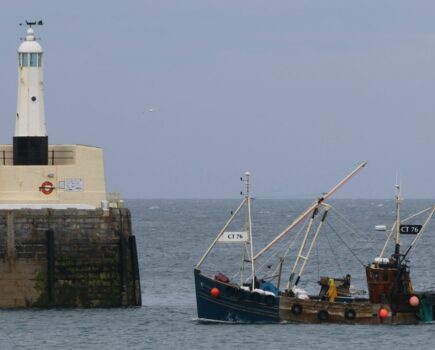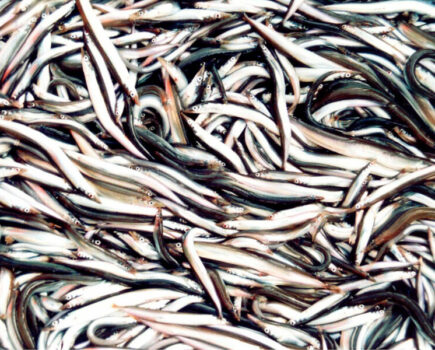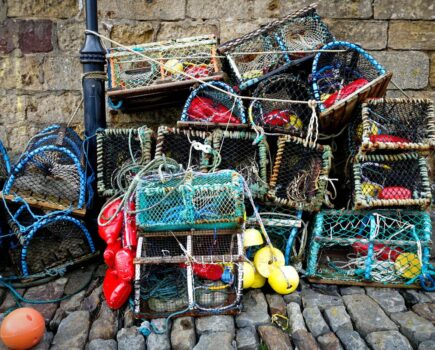Industry fury at Brexit sell-out
One-off chance to right historic wrongs squandered
UK fishing industry leaders have accused Boris Johnson and the UK government of betraying and selling out the industry to achieve a Brexit deal, as Ted Heath did 50 years ago, reports Tim Oliver.
Reactions to the deal, agreed on Christmas Eve amid a fanfare of government claims of success, ranged from widespread disappointment to fury to despair that a once-in-a-generation chance for the UK to rebalance historic wrongs has been lost.
The deal, which sees a five-and-a-half-year transition period and phased repatriation of only 25% of current EU quotas by value, and no exclusive 12-mile limit, came despite endless declarations by the prime minister, cabinet minister Michael Gove and other ministers that the UK would become a sovereign coastal state and take full control of its own waters from 1 January, 2021.
There is particular anger and disappointment at the failure to exclude all EU vessels from the six to 12-mile zone, which was a top priority for many fishermen. And the small quota gains the deal will bring are more than offset for many key species by the ending of normal international quota-swapping arrangements.
The one welcome upside to the deal for the fishing and seafood industry is that it secures tariff- and quota-free exports to the EU, although with a massively increased burden of paperwork.
Announcing the deal, Boris Johnson said: “For the first time since 1973, we will be an independent coastal state with full control of our waters.”
He said that the UK’s share of fish in its waters would rise ‘substantially’ from about half today to closer to two-thirds in five and a half years’ time, and that the UK would be able ‘to catch and eat quite prodigious quantities of fish’.
The government said that the deal delivered ‘everything that the British public was promised during the 2016 referendum and in the general election last year’.
“We have taken back control of our money, borders, laws, trade and our fishing waters,” said a spokesman.
But industry leaders accused the government of betraying the industry and selling it out to get a trade deal, and there was anger at the government’s attempts to ‘spin’ the deal as a success for the fishing industry.
NFFO chief executive Barrie Deas said: “When push came to shove, despite the legal, moral and political strength of our case, fishing was sacrificed for other national objectives.
“Throughout the fishing industry, there is a profound sense of disillusionment, betrayal and fury that after all the rhetoric, promises and assurances, the government caved in on fish.
“This was a decision taken at the highest political levels, and it is important that responsibility is taken for the choices made. This is no time for spin.”
Chance squandered
“The fishing industry will want it clearly understood that the best opportunity in a generation for a different and better future has been squandered,” said Barrie Deas.
“The thing that has disappointed most of our members is the six to 12, which we thought was a red line – it turns out it wasn’t.” NFFO members described the quota gains made as ‘miniscule, marginal, paltry and pathetic’.
Elspeth Macdonald, chief executive of the Scottish Fishermen’s Federation, said: “This deal falls very far short of the commitments and promises that were made to the fishing industry by those at the highest level of government.
“It does not restore sovereign UK control over fisheries, and does not permit us to determine who can catch what, where and when in our own waters.”
Mike Park, chief executive of the Scottish White Fish Producers’ Association, said that his members were ‘deeply aggrieved at the very challenging situation’ they face in 2021.
He said: “Whereas we have gained modest uplifts in shares for some stocks, the stark reality is that the demersal sector enters 2021 facing significant shortfalls across a range of key species, which is down to the fact that we can no longer enter into direct quota swaps with colleagues in Europe.
“In addition, the issue of sovereignty and our future ability to negotiate additional shares after the five-and-a-half-year window would seem clouded by so much complexity that it is difficult at this time to see how the UK government can use its newly recovered sovereignty to improve the situation of my members.”
NUTFA director Jerry Percy slammed the failure to achieve an exclusive 12-mile zone and the minimal increases in quotas.
“If we have to wait five and a half years for any change then we may as well not bother, as there will be insufficient resources left after that period to sustain the inshore fleet,” he said.
Talks between the UK, EU and Norway to agree fishing opportunities for 2021 were expected to begin this week, with the UK at the table as an independent coastal state for the first time in over 40 years. Talks between the UK and Faroe began before Christmas and were continuing last week.
Summary of Brexit deal
Quota shares
UK quota shares will increase gradually over five years to 25% of the value of the EU catch in UK waters. The increases will be phased in as follows: year 1 – 15%; year 2 – 17.5%; year 3 – 20%; year 4 – 22.5%; year 5 – 25%.
Percentage increases have been agreed for specific stocks. For example, after the five-and-a-half-year adjustment period, the UK’s share of Channel cod will have increased from 9.3% to 10.2%, Celtic Sea haddock from 10% to 20% and North Sea saithe from 23% to 26%.
International quota swaps between POs will end. Any international quota and effort swaps will have to be agreed as part of the annual negotiations. There may be some limited scope for in-year international quota swaps at government level.
Extra quota for some areas of the UK from Hague Preference arrangements has also ended.
The current Western Waters effort regime and days at sea effort baselines will continue to apply in UK waters.
Access
There is full reciprocal access for EU and UK vessels to fish in each other’s waters during the adjustment period, including in the UK six to 12-mile zone for vessels with historic rights in the zone (active for at least one day each year between 2012 and 2016). If the UK tries to restrict access for EU vessels before the end of the adjustment period, the EU can block access for UK vessels in EU waters and introduce tariffs on fishery products.
Annual negotiations
There will be annual negotiations with the EU and other coastal states on setting TACs during the adjustment period, and after that on access arrangements as well, including in the six to 12-mile zone.
If the UK wants to negotiate reduced EU access after the adjustment period, the EU can impose tariffs on UK fish and seafood exports to compensate EU fishermen, but the level of tariffs must reflect the economic and social impacts of the access reduction. There will be an arbitration process for disputes.
Regulatory autonomy
The UK will be able to develop its own fisheries management systems, as long as the measures are non-discriminatory.
Fisheries committee
A Specialised Committee on Fisheries will be set up for the UK and the EU to co-operate on a range of fisheries matters. These include co-operation ahead of annual fisheries consultations, multi-year strategies, data-sharing, and monitoring and compliance.
Crown Dependencies
The agreement also contains provisions on the Crown Dependencies (Channel Isles and Isle of Man) to allow EU vessels to fish in Crown Dependency waters at historic levels if the dependencies agree.
£100m support package
The UK government will announce details of a £100m support package for the industry soon.
A government spokesperson said: “Throughout the adjustment period, the UK government will invest in fishing communities and do everything in its power to help to rebuild the industry. The prime minister has committed £100m in funding for the fishing industry, with more detail to be announced in due course.”
The UK government has also guaranteed that all European Maritime and Fisheries Fund projects approved before 31 December, 2020 will be fully funded.
Moves on Covid industry support
With the country again in lockdown due to spiralling Covid infections, moves are being made to build up a case for another support package for the industry, reports Tim Oliver.
Covid has badly affected markets for fish and shellfish, and came on the back of a bad winter in 2019/20 which left many boats with any financial resilience, particularly smaller vessels.
Now the fleet is facing another winter and little prospect of markets recovering in the next few months.
NFFO chief executive Barrie Deas said: “We saw the first time round that not all sectors are affected the same, so we’re asking DEFRA and the MMO to monitor prices and landings to see who’s affected. Ultimately, if we’re going to secure additional funding, we have to put a case to the Treasury.”
He said the case for further government support was building, and the federation would remain in close dialogue with government.
Brexit deal reaction: pages 3, 4, 5, 6, 8 and 9 in this week’s Fishing News








